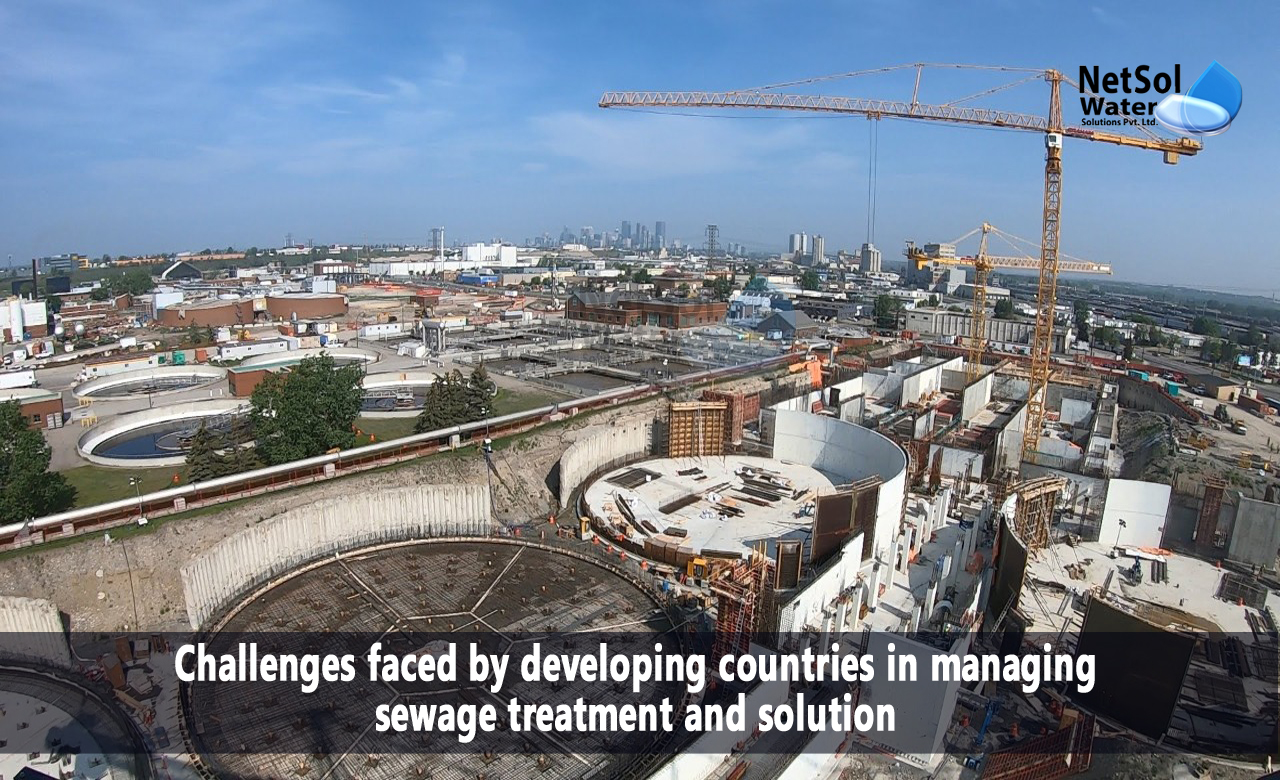Challenges and Solutions: STP Plants in Developing Countries
In developing countries, the management of sewage and wastewater poses significant challenges due to rapid urbanization, limited resources, and inadequate infrastructure. The establishment and operation of efficient sewage treatment plants (STPs) are crucial for protecting public health and the environment.
Here we will examine the challenges faced by developing countries in managing sewage treatment and explores potential solutions to address these issues effectively.
Challenges and Solutions:
Here are few points of challenges and also their solutions in developing countries about STPs:
1. Insufficient Infrastructure
One of the primary challenges faced by developing countries is the lack of adequate sewage treatment infrastructure. Many urban areas lack proper sewer networks, resulting in the direct discharge of untreated sewage into rivers, lakes, and oceans. Insufficient infrastructure not only affects the environment but also poses health risks to communities. Governments and policymakers must prioritize investments in sewage treatment infrastructure to build an effective and comprehensive network.
2. Limited Financial Resources
Financial constraints often hinder the development and maintenance of sewage treatment plants in developing countries. Establishing a modern and efficient STP requires significant capital investment, operational expenses, and maintenance costs. Governments should explore partnerships with international organizations, private sector entities, and funding agencies to secure the necessary funds for infrastructure development. Innovative financing models, such as public-private partnerships, can help bridge the funding gap and ensure sustainable operations.
3. Energy Consumption and Efficiency
Sewage treatment plants consume a considerable amount of energy, primarily for aeration, sludge treatment, and disinfection processes. In developing countries, where energy resources are scarce, high energy consumption can strain limited supplies and contribute to environmental degradation. Implementing energy-efficient technologies and practices can help reduce the overall energy demand of STPs. Utilizing renewable energy sources, such as solar or biogas, can significantly lower operational costs and decrease the carbon footprint of sewage treatment.
4. Skilled Workforce and Capacity Building
Another significant challenge faced by developing countries is the lack of a skilled workforce in the operation and maintenance of sewage treatment plants. Proper training and capacity building programs are essential to ensure efficient and sustainable plant operations. Governments and stakeholders should invest in technical education and vocational training programs to develop a competent workforce with expertise in sewage treatment technologies. Collaborations with international institutions and knowledge-sharing platforms can facilitate skill development and knowledge transfer.
5. Public Awareness and Participation
Raising public awareness about the importance of proper sewage treatment and its impact on public health and the environment is crucial. In many developing countries, there is a lack of awareness among the general population about the consequences of inadequate sewage management. Governments, along with non-governmental organizations, should undertake public awareness campaigns to educate communities about the benefits of sewage treatment and the role individuals can play in reducing pollution. Encouraging public participation and promoting responsible wastewater disposal practices can significantly contribute to improving sewage treatment outcomes.
Summary:
Sewage treatment plants in developing countries face numerous challenges due to inadequate infrastructure, limited financial resources, energy consumption, workforce capacity, and public awareness. Addressing these challenges requires a multi-faceted approach involving investments in infrastructure, innovative financing models, energy-efficient technologies, capacity building, and public engagement. By implementing sustainable solutions, developing countries can enhance their sewage treatment capabilities, safeguard public health, and preserve the environment for future generations.
Leading manufacturer of sewage treatment plants in India.
Netsol Water is the leading manufacturer, supplier, and exporter of a quality selection of water treatment, and wastewater treatment products in India, by using advanced sewage treatment methods.
RO plants, water softeners, ETPs, STPs, DM plants, AMC, O&M, Ultra filtration, UV, Ozonation, ZLD plants, Anoxic tanks, and other goods and services are available from us. We also provide services to businesses in sectors including automotive, pharmaceutical, textile, pulp & paper, beverages, refineries, schools, hospitals, office buildings, and hotels, among others.
Netsol Water is Greater Noida-based leading water & wastewater treatment plant manufacturer. We are industry's most demanding company based on client review and work quality. We are known as best commercial RO plant manufacturers, industrial RO plant manufacturer, sewage treatment plant manufacturer, Water Softener Plant Manufacturers and effluent treatment plant manufacturers. Apart from this 24x7 customer support is our USP. Call on +91-9650608473, or write us at enquiry@netsolwater.com for any support, inquiry or product-purchase related query.



